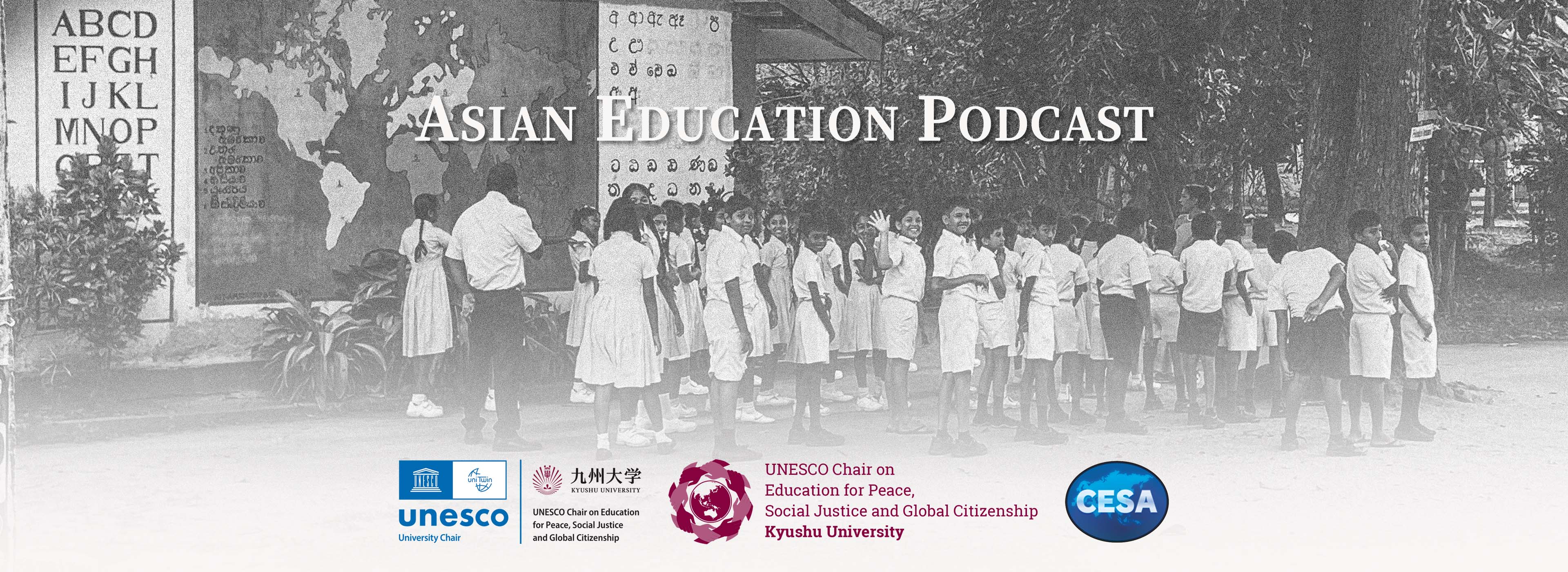
In this episode of the Asian Education Podcast, we are joined by Dr Brenda Dobia, who has a background both in clinical psychology and cultural studies, and has been actively involved in Social and Emotional Learning (SEL), both in her native Australia and in Asia-related projects. In Australia, she has worked with indigenous children and youth and on training pre-service teachers in Education for Sustainable Development (ESD).
We begin by discussing Brenda’s involvement with the Australian government’s mental health and well-being initiative for the early childhood and primary phase, KidsMatter, which had SEL as one of its pillars. We then discuss how SEL discourse has gained traction in policymaking circles, through widespread adoption of the CASEL framework and growing credence to the idea that social and emotional skills are teachable skills. Questions that arise include: Who identifies these skills? How can (or should) they be assessed? And for what purpose? Drawing on her experience of efforts to adapt KidsMatter for indigenous communities, Brenda elaborates on the challenges of accommodating cultural diversity within standardised approaches to SEL. For example, SEL based on mainstream Australian values, including the assumption that children should have autonomy and express their individuality, may clash with indigenous values that see “standing out and putting yourself forward” as shameful.
But the issues raised by the growing fashion for SEL extend beyond such questions of cultural adaptation or contesting ‘Western’ universalism. As we noted in Episode 3 (our interview with Tara de Mel on education policy in Sri Lanka), SEL is also increasingly touted as a strategy for responding to manifold crises. But is the most appropriate response to a crisis like climate change, for example, to teach individual youngsters to manage their anxiety (the SEL approach), or should we be urgently fostering political agency and active citizenship as we work together to tackle such issues (the ESD approach)? Might certain forms of SEL contribute to depoliticisation, deterring young people from speaking up - especially in the many Asian societies where regimes seek to lend conformity and political quiescence the sanction of ‘tradition’? In assessing the usefulness (or otherwise) of SEL programmes, we need to be mindful not just of cultural difference, but also of political context. As our conversation with Brenda takes a more political turn, we discuss tensions between individualism and collectivism, the fashion for yoga and mindfulness as a ‘reverse import’ from the United States to Asia, and the relationship between Mahatma Gandhi’s ideas and youth climate activism.
Notes: Edward’s comment on the arrest of an Indian climate activist (around 38:10) requires explanation. In February 2021, Disha Ravi, one of the founders of the Indian chapter of the Fridays for the Future climate strike, was arrested after sharing a document (first tweeted by Greta Thunberg) intended to help Indian farmers protesting against new agricultural laws. Her arrest therefore broadly reflects the Indian government’s approach to quelling dissent and deterring anti-government protests, if not specifically its reaction to youth climate activism.
Organizations and initiatives mentioned in this episode
- KidsMatter KidsMatterAustralia - YouTube (an Australian mental health and well-being initiative set in primary schools, early childhood education and care services, which has been turned into a national mental health in education initiative Be You)
- CASEL (Collaborative for Academic, Social, and Emotional Learning)
- Earth Charter
- Psychology for a Safe Climate
- Climate Psychology Alliance
Recommended readings:
- Dobia, B., Roffey, S. (2017). Respect for Culture—Social and Emotional Learning with Aboriginal and Torres Strait Islander Youth. In: Frydenberg, E., Martin, A., Collie, R. (eds) Social and Emotional Learning in Australia and the Asia-Pacific. Springer, Singapore. https://doi.org/10.1007/978-981-10-3394-0_17
- UNESCO-MGIEP (2017). Rethinking Schooling for the 21st Century: The State of Education for Peace, Sustainable Development and Global Citizenship in Asia. New Delhi: MGIEP.
- UNESCO-MGIEP (2020). Rethinking Learning: A Review of Social and Emotional Learning for Education Systems. New Delhi: MGIEP.

